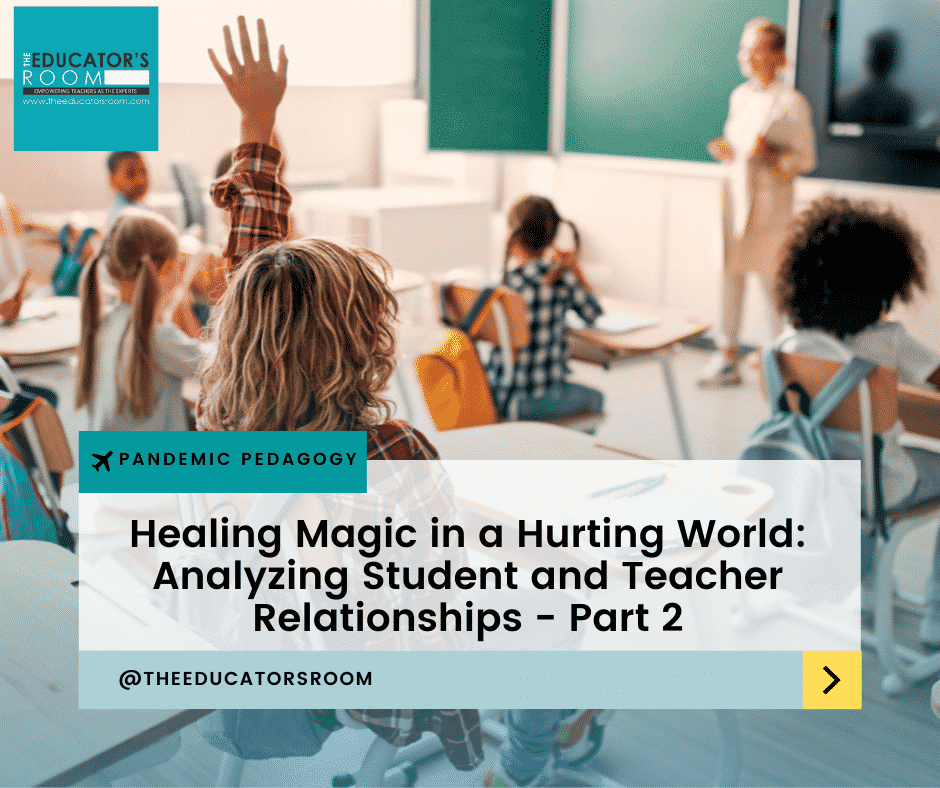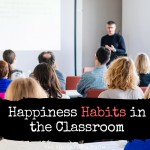Have you signed up for The Educator’s Room Daily Newsletter? Click here and support independent journalism!
If you missed it, check out Part 1 of Healing Magic in a Hurting World, where we explore the necessity of leading classrooms with compassion.
I have had the honor of teaching some of the most brilliant and resilient young people on the planet. Several students traveled hundreds of miles with their families on foot seeking shelter in refugee camps on the other side of the world. Later these same students would make their way to my midwestern classroom, eyes gleaming as they had never seen the emergencies and atrocities experienced on their journeys to America. These are the indelible lessons you teach in modeling your listening and appreciating all your students and their stories.
Most of these kinds of classroom discussions I had the unbelievable privilege of leading, letting students share their stories and selves, changed me forever and the other students in the room forever. These stories expanded all our hearts a thousand-fold and connected and amazed us all. I curated that unique classroom space where it happened by simply being compassionate, extremely careful, and consistent about the active caring offered to all my students every day.
I know how to lead and facilitate classroom discussions about complex, difficult matters because I vividly remember being embarrassed and diminished by teachers as a young person. I never want my students to feel embarrassed about sharing parts of their lives, their questions, their answers, their anything. In the first days of school and over and over, I explicitly discuss and set up norms by saying, “no one in the world wants to be the person that feels embarrassed or excluded from something, so, when you pick someone to turn and talk with, remember it can’t be the same person over and over, you have to listen to each other, and no one is left out. Remember, absolutely no one can be left out. We have to honor each other by making sure everyone has a partner and everyone is included.”
I cannot control so many things in my classroom, but I can control myself. For example, I can control the calm demeanor in which I receive intense, emotional language or defiant behavior because I know my students need someone to be okay with whatever they say, whatever they feel, whatever they are mad about, whatever they think about me, whatever and wherever they are in every sense. Even if it emerges as what could be described as disrespectful behavior, at heart, a student needs something, and my job is to learn, adapt, and help them with that need. My responsibility is to help students learn how to think and connect ideas, to place them on the path to reach their potential, and to help them learn to advocate for themselves in acceptable ways.
This advocacy takes practice and focus. One thing that is essential in dealing with discipline issues in your classroom is that you also treat yourself with compassion as you approach each situation, assess each topic, and plan for solutions and remedies. Young people need support and caring classmates, and you do, too. Talking to a student who is acting out in a way that interrupts any unacceptable behavior but that preserves and protects their dignity, and yours is truly magic that no one can wield but you. Healing magic happens when you set a tone in your classroom so that even when students actively try to undermine you, you bring them back to you by managing your responses and working toward the desired outcomes you want. Likewise, your magic as a teacher is derived from caring about your students enough to help them react appropriately by modeling how to react appropriately.
Frustration will always happen, and we should be loving as we approach student frustration. This is an unbelievably difficult time, and our teaching has to make room for that. Our teaching, essentially, is just that; adapting to the needs of our students. That is the power we hold against the pressures of curriculum pacing, against anger or frustration over COVID-19 challenges and mitigation measures, against the insufficient or outdated curriculum, against the pressures of teacher performance evaluations, against high-stakes testing and preparation, against unfinished learning, against institutional racism and the swirling cyclone of injustice and violence that encircles our students’ lives each day.
We have the power to listen, understand, and push back with the best of ourselves, continuing to examine our own biases every day. Shaping young lives affords us immeasurable power: to hurt or to heal, to degrade or to develop, to dim or to magnify, to ignore or to listen, to let languish or to love. I know in my heart that the latter of each example is the honor of my life, right along with being a Mom and a wife. We took vows as educators; although they are not official nor exalted as the Hippocratic Oath, we can elevate our profession and work to heal by properly embodying the love and compassion our students, us, and the rest of the world all need.
References
Agir, M. S. (2019). The effect of perceived teacher behaviors on students’ self-esteem and attitudes towards learning. Journal of Education and Learning, 8(5), 203. https://doi.org/10.5539/jel.v8n5p203
Feuer, W. (2021, Mar. 5) WHO says pandemic has caused more ‘mass trauma’ than WWII. CNBC.com.https://www.cnbc.com/2021/03/05/who-says-pandemic-has-caused-more-mass-trauma-than-wwii-and-will-last-for-years.html
Freeman, B.L. (2007, Aug. 1). Morning Meeting: A Soft Place to Land. ResponsiveClassroom.org






